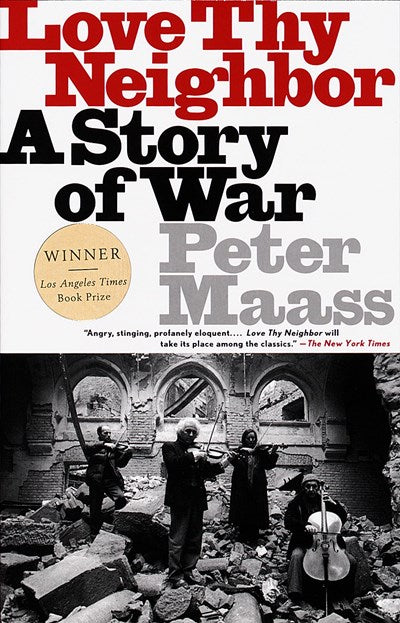"One of the definitive accounts of Bosnia's fin de siècle descent into madness"
--The Cleveland Plain Dealer).
"Moving and morally compelling.... [A] strikingly personal and passionate account of the war by...a reporter who got closer to the action and the suffering than any diplomat, policy maker or academic.... Maass lets his eye for the arresting detail and his conscience be his guides. The result is a gripping journey through a hellish war, with pit stops to meet some of the victims and their executioners. It is a hair-raising, stomach-churning and, ultimately, consciousness-raising ride, and one that will force readers to examine their own values and those of the Western powers who appeased aggressors while a quarter of a million people died horrible deaths.... Throughout the book, Maass examines two themes: first how can human beings be so monstrous to one another or stand by when others are brutalized, and second, how could Western powers, including the United States, fail to stop aggression and appease the worst war criminals in Europe."
--The Boston Globe
"Angry, stinging, profanely eloquent and often painful.... What Mr. Maass gives us in short is a view of ethnic cleansing in all of its cruelty, its absurd detail, its self-justification, its dehumanization of the other. Love Thy Neighbor will take its place among the classics of an unfortunate genre: the portrayal of humankind at its worst."
--The New York Times
"Maass' portrait of human nature at its worst is powerfully emotional.... Maass insistently and with compelling reasons recasts the [Serb and Muslim] choices as ones any one of us might make, given the proper demagogue.... Such ominous reflections elevate this book beyond the notes of a seasoned reporter to the plane of a more universal examination of the narrow self-interest that can encourage, or ignore, the savagery of which we are capable. Maass' graphic demonstration of this reality is rendered all the more stark in light of his portrayal of the generosity and desire for meaning in the face of brutality's victims."
--John C. Hawley, Santa Clara University, The San Francisco Chronicle

